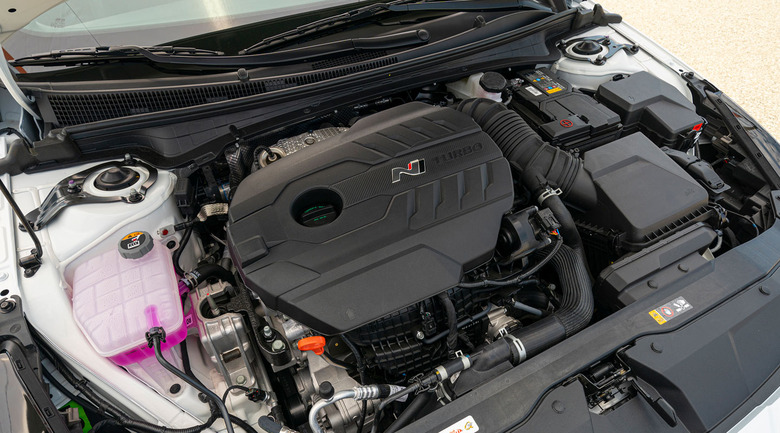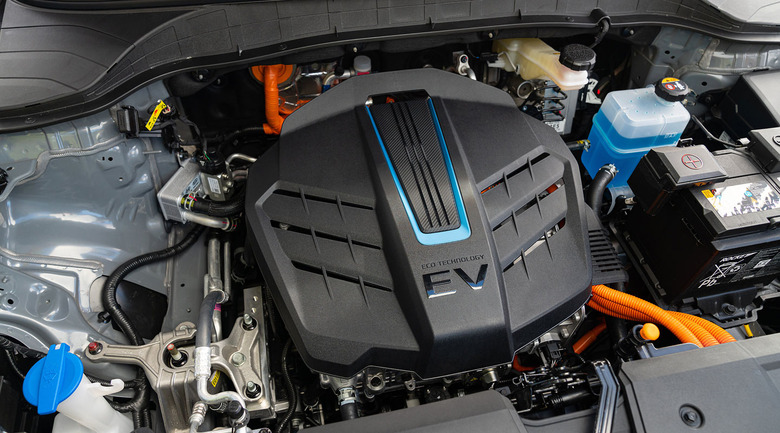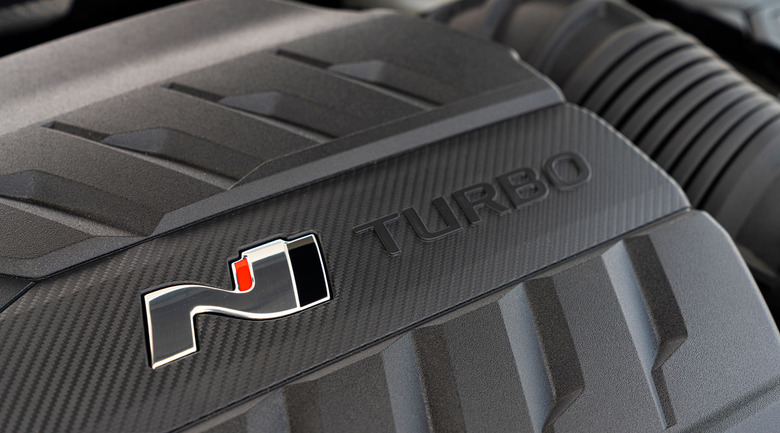Hyundai Refutes Claim Of Move To EV-Only
Last week a report surfaced that started with a Korean publication called the Korea Economic Daily claiming that Korean automaker Hyundai had abandoned the development of new internal combustion engines (ICE). According to that report, Hyundai was abandoning the development of ICE as part of its transition to become a completely electric vehicle manufacturer. Most automakers will transition to selling only electric vehicles at some point in the future.
While Hyundai does have pure electric vehicles on the market today, the vast majority of the cars and SUVs it currently sells use internal combustion engines. The move to abandon the development of new ICE would make Hyundai one of the first major automotive manufacturers to transition to pure electric vehicles.
Hyundai Denies Original Report
Hyundai has now outright denied that it is stopping the development of its engines. Hyundai denied the original report in an email sent to Motor1. The email came from Michael Stewart, Senior Group Manager at Hyundai Motor America. In that email, Stewart wrote that Hyundai Motor Group was not stopping the development of ICE despite media reports.

Stewart stated that Hyundai was "dedicated" to a strong portfolio of powertrains for global customers, including both "highly efficient engines" and electric vehicles that produce zero emissions. Most automakers will eventually abandon ICE development as mandates worldwide are pushing for just that. However, abandoning engines at such an early date could certainly harm sales for Hyundai, particularly for buyers who live in rural areas of the US and other parts of the world.
Despite a strong push to get consumers to purchase electric vehicles, a charging infrastructure strong enough to handle the mass migration to EVs doesn't exist in many parts of the US. Even in some of the larger cities in many states, the charging infrastructure currently remains sporadic and unable to handle large numbers of electric vehicles. Charging is a challenge for people who live in multifamily dwellings such as apartments or condos.

For apartment dwellers in many cities, there is no charging infrastructure available at their homes. Apartment dwellers cannot install their own charging systems, and many businesses have no charging infrastructure for employees while they are at work. For people in this situation, it's essentially impossible to charge an electric vehicle without spending significant time parked in a garage or parking lot somewhere charging their car.
It's most likely that Europe and European automakers will be among the first to abandon the ICE in favor of pure electric vehicles. Hyundai had previously stated it would become a fully electric vehicle manufacturer by 2035 in Europe. That goal falls in line with statements from other major automakers.
The Original Report
The original report (linked above) surfaced at the end of December and claimed that Hyundai Motor Co. had closed its combustion-engine R&D center as of December 23. That R&D center reportedly had 12,000 employees, and its closing meant the end of ICE development for the automaker that began in 1983. Hyundai had credited the development of its own engines with helping it achieve the sales success it enjoys worldwide.

According to the original report, with the ending of combustion engine development, Hyundai's existing powertrain system development centers were to be converted to test centers for electrification. The company's existing powertrain performance development center was to be transitioned into an electrification performance development center. That original report also claimed that Hyundai was opening a new battery development center as part of its transition to producing pure electric vehicles.
It's worth noting that Stewart didn't deny any of Hyundai's reported plans to open test centers for electrification or an electrification performance development center. Certainly, the automaker could still have plans to begin heavy development of electrification systems and batteries, but that is unconfirmed. Previously, the automaker had stated that it and its sister company Kia intended to sell 1 million EVs annually by 2025 and 1.7 million by 2026 globally.

Kia and Hyundai typically sell slightly different versions of the same vehicles. So it would stand to reason that whatever one of the automakers does, the other will follow.
Challenges Remain for Automakers
Many challenges remain to any automaker looking to begin transitioning to purely electric vehicles anytime soon. One of the biggest challenges continues to be the short supply of raw materials to build electrified vehicles and traditional ICE vehicles. In particularly short supply currently are microchips required for modern vehicle systems.
A specific challenge confronting any manufacturer building electric vehicles currently is supply constraints making it challenging to build battery packs. The battery pack is one of the most critical components of an electric vehicle, and currently, raw materials and manufacturing capacity are very limited. It's also worth noting that it's certainly within the realm of possibility for Hyundai to deny its abandoning ICE development to help protect sales of its current models.
